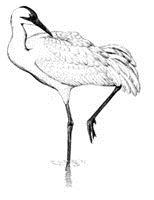North American Crane Working Group

Proceedings of the North American Crane Workshop
Date of this Version
1992
Document Type
Article
Citation
Gee, G.F., H.C. Dessauer, J. Longmire, W.E. Briles, and R.C. Simon. The study of relatedness and genetic diversity in cranes. In: Wood D. A., ed. 1992. Proceedings 1988 North American Crane Workshop, Feb. 22–24, 1988. Lake Wales, Florida (Tallahassee, FL: State of Florida Game and Fresh Water Fish Commission Nongame Wildlife Program Technical Report #12, 1992), pp. 225-230.
Abstract
The U.S. Fish and Wildlife Service (Service) is responsible for recovery of endangered species in the wild and, when necessary, maintenance in captivity. These programs provide an immediate measure of insurance against extinction. A prerequisite inherent in all of these programs is the preservation of enough genetic diversity to maintain a viable population and to maintain the capacity of the population to respond to change. Measures of genetic diversity examine polymorphic genes that are not influenced by selection pressures. Examples of these techniques and those used to determine relatedness are discussed. Studies of genetic diversity, electrophoresis of blood proteins, relatedness, blood typing, and restriction fragment length polymorphisms which are being used by the Patuxent Wildlife Research Center are discussed in detail.
Included in
Behavior and Ethology Commons, Biodiversity Commons, Ornithology Commons, Population Biology Commons, Terrestrial and Aquatic Ecology Commons


Comments
Used by permission of the North American Crane Working Group.